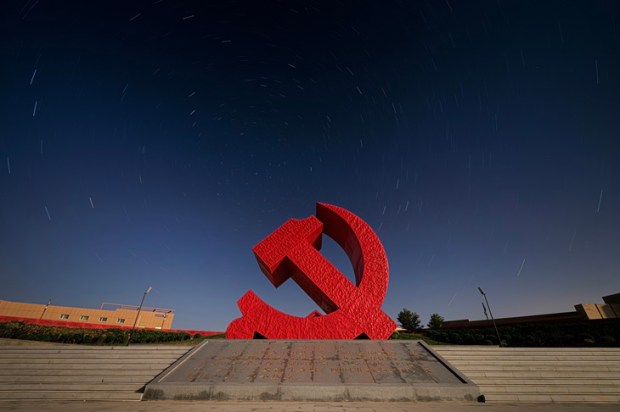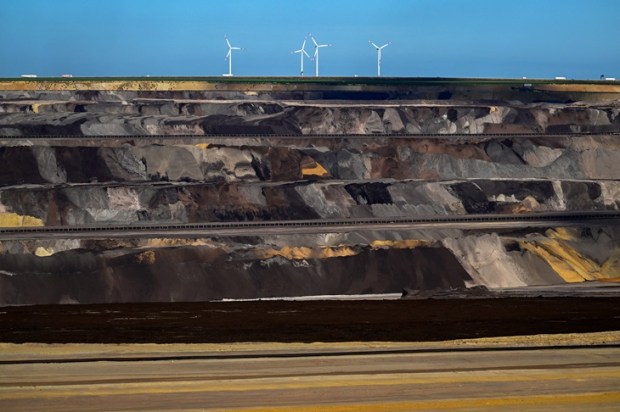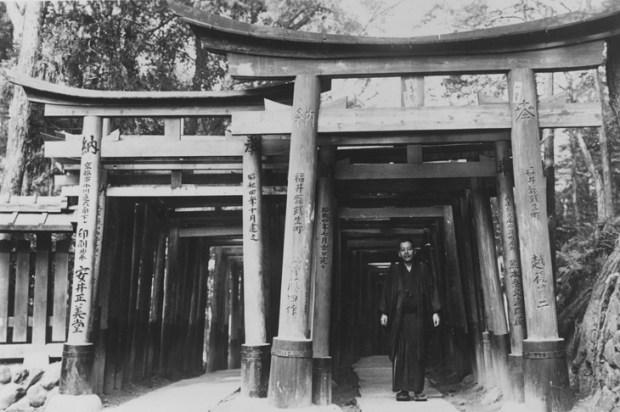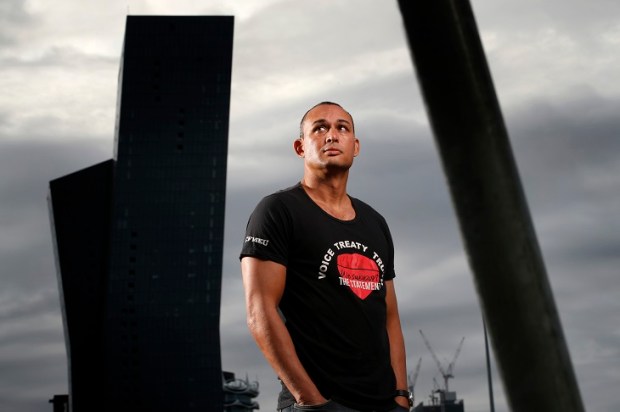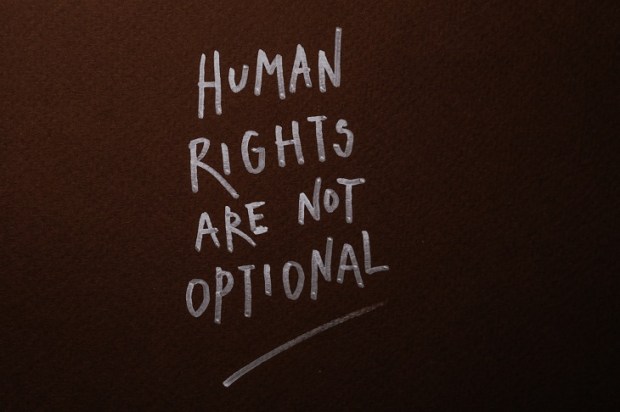Recent instances of the Chinese Communist Party’s (CCP) censorship indicate its global and persistent efforts to block any pipelines of dissent in Hong Kong. For example, there was the unexplained screening cancellation of the movie Winnie the Pooh: Blood and Honey and the removal of artwork subtly honouring jailed Hong Kong protesters. Beyond Hong Kong, America, and Australia have faced concerns about the alleged proliferation of CCP propaganda, disinformation, and online censorship via apps like WeChat and TikTok, which these companies stringently deny.
Almost three years after the imposition of the National Security Law (NSL) in Hong Kong, HxEast Asia – a group of academics and university students concerned with the state of academic freedom in the East Asia region – held a panel discussion seeking to understand the ongoing impacts and mechanics of the National Security Law in Hong Kong’s universities.
The panel’s participants included an academic that we shall refer to as ‘E’ to protect their anonymity. E has been working at his university in Hong Kong since 1996. Also on the panel, Drew Pavlou, a pro-democracy activist based at the University Of Queensland; and Alexandre Erler, a philosophy professor at National Yang Ming Chiao Tung University.
This article unpacks the NSL’s speech suppression avenues, CCP crackdowns on pro-democracy activism in American and Australian universities, and the consequences that the CCP’s expanding surveillance has on a Western world that devalues freedom.
E watched the erosion of Hong Kong’s academic freedom, beginning with a restriction on topics permitted for investigation. For example, early in E’s career, academics were allowed to conduct research into non-mainstream groups such as the Falun Gong. However, this freedom was curtailed by the introduction of legislation targeting ‘evil cults’ which condemned the Falun Gong. Since the NSL’s imposition, academics have avoided touching any topics that could lead to accusations of sedition intention (i.e., intention to overthrow the government). Only ‘state-approved’ academics are permitted to conduct research into controversial political topics.
The NSL’s censorship structure is airtight, blocking criticism of the government via top-down university management and narrowing the scope of classroom discussion. Senior management at Hong Kong’s universities assumed the roles of NSL police, overseeing the appropriateness of their teaching staff’s course content. E’s university closed their student unions, which had previously been official members of its administration, to distance itself from any potential student dissent. On the syllabus level, students were now required to take a course in the NSL, ostensibly ‘for their own safety.’
I asked if it was ironic to justify a course on the NSL as being for student safety, when the NSL itself was the cause of danger.
Unlike his students, E is not hostile to a course that informs them about the NSL:
‘…to properly combat the NSL, students need to understand what it’s about. They cannot just disagree with it based on personal feelings. I’m more concerned about the lack of balance when teaching it. If we’re going to have a course on the NSL, we should also have a counterbalancing course like ‘Understanding Human Rights’. Students need to see both sides to critically consider the legislation.’
Foreign academics in human rights and other disciplines that could introduce opposing views to the NSL are either refused visas to work in Hong Kong or have their existing contracts terminated. Academics and students still interested in human rights and China-Hong Kong issues have opted to move overseas. E fears that the muting of studies on China-Hong Kong relations will lead to an extinction of the discipline within Hong Kong.
In addition to preventing foreign contamination within their own territories, the CCP’s censorship has reached well into Western liberal democracies.
Pavlou came to national attention in 2019 when he, along with other protesters against the NSL and the mistreatment of China’s ethnic minorities, were confronted by pro-Beijing activists.
Mr Pavlou has long been critical of the university’s ties to Chinese Government organisations, including the Confucius Institute.
The philosophy student also organised a rally at the university’s Brisbane campus that ended in ugly clashes between pro-Hong Kong and pro-Beijing students.
During the July 2019 rally, Mr Pavlou was allegedly assaulted by counter-protesters.
According to the ABC, the Chinese Consul General in Brisbane praised the pro-Beijing activists’ ‘patriotic behaviour’.
The Brisbane Magistrates Court heard the Consul General, Xu Jie, issued a media release that praised the actions of pro-Beijing students the day after Mr Pavlou was assaulted at a rally on campus in July 2019.
The Weekend Australian also reported on the Consul General’s statement in praise of the pro-Beijing activists, saying:
Dr Xu’s statement, issued on the website of the Chinese consulate, praised pro-Beijing students involved in scuffles with Mr Pavlou. “The consulate-general regards highly the importance of the safety of overseas Chinese students and affirms the self-motivated patriotic behaviour of the overseas Chinese students,’’ the statement said.
The University of Queensland, along with other Australian universities, has previously been criticised for its apparent financial dependence on Chinese students which make up a significant portion of the international student body. Nationally, the Chinese student market is thought to be worth $10.5 billion, with most originating from mainland China, not Hong Kong.
While some criticise the University of Queensland, others have praised their efforts, with the former vice chancellor receiving a medal to honour his efforts in the promotion of Confucian Institutes worldwide.
A press release from the University of Queensland read:
The 2015 Outstanding Individual of the Year Award is from the Confucius Institute headquarters, known as Hanban. Hanban is responsible for about 470 Confucius Institutes and 1,000 Confucius classrooms that promote understanding of Chinese language and culture around the world.
The University of Queensland’s Confucian Institute previously funded four courses about Chinese society and economy. These courses have come under scrutiny. News.com.au noted that, ‘another discussion [within the course] was devoted to whether pro-democracy protests in Hong Kong amount to terrorism’ while the ABC wrote in 2019:
UQ’s courses in Chinese policy, music and language were developed in partnership with its Confucius Institute, one of 13 such Chinese Government-funded soft power centres in Australia, which run language and culture classes in universities and schools and have been accused of being vehicles for Chinese propaganda.
As part of the wider conversation regarding the CCP’s global ideological reach, a ProPublica and Human Rights Watch report suggests that the problem of CCP presence in American and Australian universities extend well beyond Pavlou’s case.
ProPublica noted several instances of Chinese students in American universities being harassed and threatened by pro-Beijing students for speaking on sensitive topics like the Tiananmen Square massacre and the Uighur genocide. From ProPublica:
On the bucolic campus of Purdue University in Indiana, deep in America’s heartland and 7,000 miles from his home in China, Zhihao Kong thought he could finally express himself. In a rush of adrenaline last year, the graduate student posted an open letter on a dissident website praising the heroism of the students killed in the Tiananmen Square massacre in 1989.
The blowback, he said, was fast and frightening. His parents called from China, crying. Officers of the Ministry of State Security, the feared civilian spy agency, had warned them about his activism in the United States.
“They told us to make you stop or we are all in trouble,” his parents said.
Many American educators remain unaware of their dissenting Chinese students’ suffering. ProPublica also reported on the difficulty of assisting students in this area:
US law enforcement agencies have struggled to respond because much of the censorship and harassment occurs in a legal grey area. Victims are often frightened or don’t believe anyone can help. And university administrators are not always eager to intercede because it means risking a lucrative financial stream. US universities have received more than $1 billion in donations from mainland China — from individuals, companies, government organisations — since 2013, according to the Department of Education. That doesn’t include tuition paid by Chinese students, whose numbers in the US reached 370,000 in 2019. Moreover, the complexities of free speech and identity politics make administrators even more reluctant to confront Chinese state influence.
The Human Rights Watch report on CCP reach within Australia suggests that the Chinese government’s restriction of critical viewpoints ‘has worsened in recent years’. One academic described his university (which remains unknown) as ‘absolutely hooked on Chinese foreign money’.
Pro-democracy students from China and Hong Kong have reported, although we cannot confirm, direct harassment and intimidation from Chinese classmates, threats of physical violence, doxing, and state-issued threats to their families. Worse yet, some in the Australian media stereotyped Chinese students as being brainwashed by the CCP during Covid and related trade wars between Australia and China. The result has been an alienation of pro-democracy Chinese and Hong Kong students from their universities as well as the wider Chinese and Australian public.
Erler noted that the NSL’s chilling effect on academic discourse around China-Hong Kong relations highlights the privilege of Hong Kong’s former free speech rights. The contrast he emphasises between pre- and post-NSL Hong Kong begs an important question: can Western liberal democracies suffer a similar fate?
The freedom to express heterodox opinions without fear of legal prosecution or physical assault is conditional on two factors: first, our intrinsic desire to defend that right; second, the courage to fight alongside dissidents of totalitarian regimes, especially when they are being hounded within our national borders. Hong Kong students still have both, despite elaborate attempts to shut down civil discourse. E described the determination of his students and other academics who privately gather and brainstorm ways to restore their institution’s former freedoms. Though he still laments the inability to take public action without serious legal risk, E still sees value in private, collective dissent that sustains an underground desire for a free world.
Unfortunately, little evidence suggests that citizens in Western democracies would appreciate their freedoms under comparable political pressure. Recent polling from UnHerd suggests that despite the unfavourable outcomes revealed about Covid lockdowns, the majority of people in Britain still believed lockdowns were the right choice.
E’s description of his school’s Democratic Wall pre- and post-NSL is a warning about where Western democracies may end. The Democratic Wall was a physical board on campus where students could post about events, politics, and general feedback. After the NSL’s introduction, two security guards began standing at the Democratic Wall to ensure no criticism of the Chinese government appeared. If we are not careful, Western democracies may become like the Democratic Wall: nominally democratic but overseen by censors who ensure we toe the line.
Thank you to HxEast Asia leaders (Shaun O’Dwyer and Joseph Yi) for your organisation of the panel event and tips for this article. HxEast Asia appreciates Hong Kong academic ‘E’ for trusting us with his story, Drew Pavlou’s recount of pro-democracy activism and Alexandre Erler’s takeaway thoughts. Thank you also to the 25 attendees around the globe – ranging from high schoolers to university academics – for their solidarity with Hong Kongers living under the NSL.


